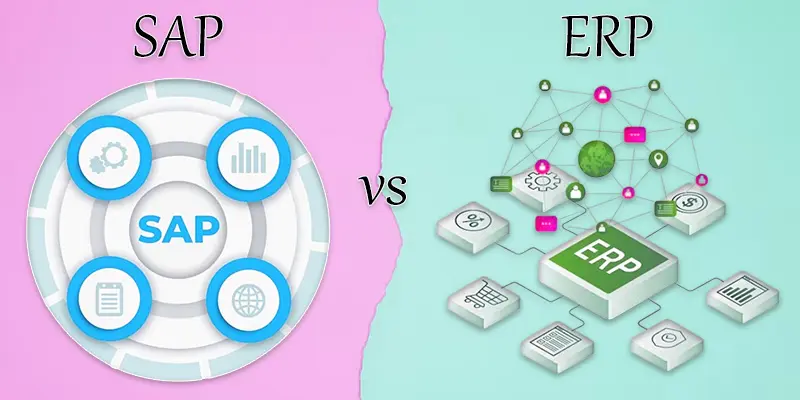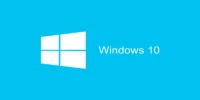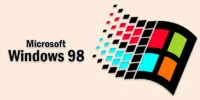SAP and ERP Software | Key Features and Differences
Published: 30 May 2025
Sap and ERP Software
SAP and ERP software help businesses run smoothly by managing their daily tasks in one place. ERP, or enterprise resource planning, is a system that tracks sales, finances, and inventory. SAP is one of the most popular ERP software systems used by big companies around the world. It makes work easier by connecting different departments in a business. Let’s explore how SAP and ERP software work and why they matter!
ERP software: what is it?
Enterprise resource planning software is referred to as ERP software. Businesses may handle several aspects of their job in one location with the use of this computer program. This includes things like sales, inventory, money, and staff. ERP software connects all departments so they can work together easily and share information.

What is SAP?
Systems, Applications, and Products is what SAP stands for. Businesses utilize this kind of ERP (Enterprise Resource Planning) software to handle their daily operations. SAP helps different departments like finance, sales, inventory, and human resources work together in one system. It is widely used by large companies around the world.
Key Features of ERP Software
ERP software brings many tools together in one system.
Finance Management
- Tracks money coming in and going out
- Helps with billing, budgeting, and payroll
- Creates reports for better money planning
Inventory Management
- Keeps count of items in stock
- Tracks product movement in and out
- Helps avoid running out of items
Sales and Customer Management
- Records customer details and orders
- Follows up on sales and deliveries
- Helps improve customer service
Human Resources (HR)
- Manages employee records
- Tracks attendance and leaves
- Handles salaries and benefits
Supply Chain Management
- Follows goods from suppliers to customers
- Helps plan product delivery and restocking
- Makes sure everything runs on time
Reporting and Analytics
- Shows useful reports with charts and numbers
- Helps make smart business decisions
- Tracks performance over time
Project Management
- Organizes work tasks and deadlines
- Assigns jobs to team members
- Tracks progress easily
Real-Life Tip
Many ERP tools let you choose only the features you need. This helps you keep things simple and save money.
Benefits of Using SAP and ERP Software
Using SAP and ERP software helps businesses work faster, smarter, and more smoothly.
Saves Time and Effort
- All work happens in one system
- No need to switch between many tools
- Example: Staff can check inventory and create bills in one place
Improves Teamwork
- Everyone in the company uses the same data
- Teams can work together better
- Less confusion and fewer mistakes
Helps with Better Decisions
- Shows real-time reports and charts
- Makes it easier to understand what’s going well or not
- Example: A manager can see which product sells best
Grows with Your Business
- ERP software can grow as your business grows
- You can add more features when needed
Keeps Data Safe and Organized
- Stores all business data in one safe place
- Reduces the chance of losing important info
Improves Customer Service
- Helps track orders and solve customer problems quickly
- Example: A shop can see if a product is in stock right away
Quick Tip
Start with basic ERP tools if you’re a small business. You can upgrade later as your business grows.

Difference Between Sap and Erp
| SAP | ERP |
|---|---|
| SAP is a brand name | ERP is a type of software |
| SAP is one kind of ERP | ERP includes many software brands |
| Created by SAP SE company | Made by many companies |
| Used by large businesses mostly | Used by all sizes of businesses |
| More complex and detailed | Some ERP tools are simple |
| Can be expensive | ERP tools come in many price ranges |
| Known for strong features | Other ERP tools may have fewer features |
| Needs expert training | Some ERP tools are easy to learn |
| Works in many industries | Some ERP tools are for specific tasks |
| Offers high customization | Customization depends on the software |
| SAP is trusted worldwide | ERP is a general term, not a brand |
| Focuses on big company needs | ERP can be for small tasks too |
| Includes tools for all departments | Not all ERP tools are all-in-one |
| Has its own support system | ERP support depends on the provider |
| Used by brands like Coca-Cola | ERP tools used by many business types |
Common Challenge
Even though SAP and ERP software are helpful, some problems can come up. But don’t worry—there are easy ways to solve them!
Challenge: It Feels Too Complicated
Solution
Start small. Focus on the basic features first. Take beginner training or watch short videos online to learn step by step.
Challenge: High Cost
Solution
Choose only the tools your business needs. For small enterprises, several ERP systems provide free or inexpensive plans.
Challenge: Takes Time to Set Up
Solution
Plan things in order. Set up one department at a time (like sales first, then finance). This makes it easier to manage.
Challenge: Staff Don’t Know How to Use It
Solution
Offer short training sessions. Keep instructions simple. Help your team learn with easy guides or examples.
Challenge: Data Errors or Mistakes
Solution
Double-check data before saving it. Set clear steps for entering information. Use built-in tools to catch errors early.
Challenge: Hard to Switch from Old Systems
Solution
Move data slowly in small parts. Test each part to make sure it works. Get help from an expert if needed.
Challenge: Software Runs Slowly
Solution
Check internet speed and system requirements. Update the software regularly to keep it running well.
Real-life examples of SAP and ERP Software
Big Company Uses SAP to Manage Everything
Imagine a big company like Coca-Cola. They use SAP to keep track of making drinks, selling them, and paying workers. SAP helps them work smoothly in many countries at once.
Small Store Uses ERP to Manage Stock
A small shop uses simple ERP software to count how many items are left on the shelves. When the stock gets low, the software tells the owner to order more. This way, the shop never runs out of popular products.
Factory Uses ERP to Plan Production
A factory uses ERP to plan when to make products and how much material to buy. This helps avoid waste and makes sure orders are ready on time.
School Uses ERP for Student Records
A school uses ERP software to keep student records, attendance, and fees in one place. It saves time and helps teachers and staff work better together.

Conclusion About Sap and ERP Systems
We’ve covered SAP and ERP software in detail. From managing business tasks to improving teamwork, these tools can make work much easier. I personally recommend starting with simple ERP features and growing as you learn. If you want your business to run smoother and faster, try exploring SAP or ERP software today. Don’t wait—take the first step toward better business management now!
FAQS
Yes, SAP is a type of ERP system. It helps businesses manage things like finance, sales, and inventory in one place. Many big companies around the world use SAP to run their daily work smoothly.
SAP software is used to manage business tasks like accounting, human resources, and supply chain. It helps teams work better together using one shared system. It’s great for both planning and tracking business activities.
SAP is a company that makes ERP software, which helps businesses manage work like sales, finance, and inventory. Enterprise resource planning is referred to as ERP. Thus, one type of ERP system that companies utilize is SAP.
The best ERP software depends on your business needs. SAP is great for large companies, while tools like Odoo or Zoho ERP are better for small businesses. Choose one that is easy to use and fits your budget.
The price range for ERP software is few hundred to thousands of dollars. Some offer monthly plans, while others charge one-time fees. Prices depend on features, company size, and support needs.
SAP software is usually more expensive than other ERP tools. Small businesses may pay a few thousand dollars per year, while large companies pay much more. The cost also depends on how many users and features you need.
ERP systems help businesses stay organized by bringing all work into one system. They save time, reduce errors, and improve decision-making. This makes work faster, smoother, and more successful.

- Be Respectful
- Stay Relevant
- Stay Positive
- True Feedback
- Encourage Discussion
- Avoid Spamming
- No Fake News
- Don't Copy-Paste
- No Personal Attacks

- Be Respectful
- Stay Relevant
- Stay Positive
- True Feedback
- Encourage Discussion
- Avoid Spamming
- No Fake News
- Don't Copy-Paste
- No Personal Attacks





